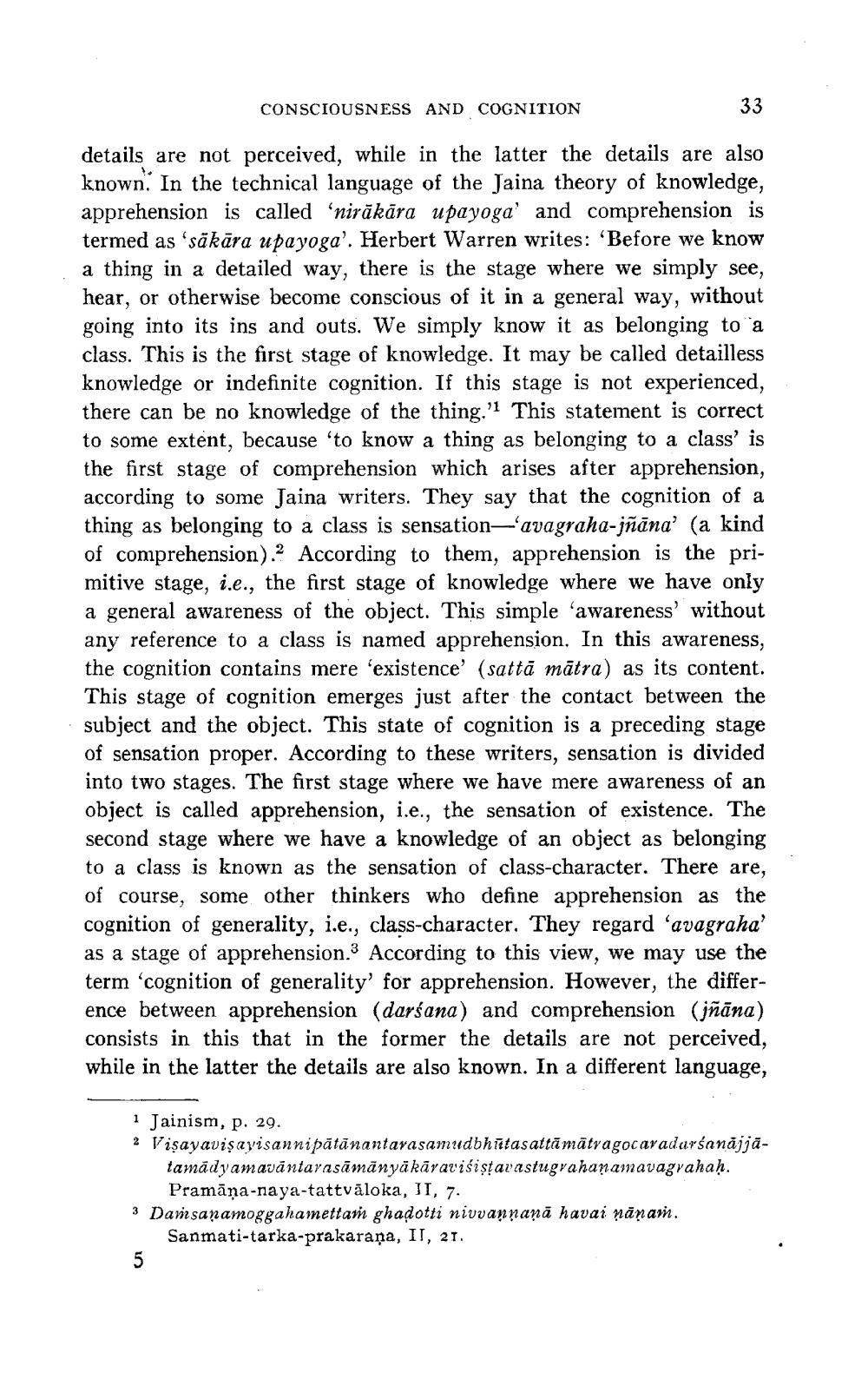________________
CONSCIOUSNESS AND COGNITION
33
details are not perceived, while in the latter the details are also known. In the technical language of the Jaina theory of knowledge, apprehension is called 'nirākāra upayoga' and comprehension is termed as 'sākāra upayoga'. Herbert Warren writes: 'Before we know a thing in a detailed way, there is the stage where we simply see, hear, or otherwise become conscious of it in a general way, without going into its ins and outs. We simply know it as belonging to a class. This is the first stage of knowledge. It may be called detailless knowledge or indefinite cognition. If this stage is not experienced, there can be no knowledge of the thing.' This statement is correct to some extent, because 'to know a thing as belonging to a class' is the first stage of comprehension which arises after apprehension, according to some Jaina writers. They say that the cognition of a thing as belonging to a class is sensation—'avagraha-jñāna' (a kind of comprehension).2 According to them, apprehension is the primitive stage, i.e., the first stage of knowledge where we have only a general awareness of the object. This simple 'awareness without any reference to a class is named apprehension. In this awareness, the cognition contains mere 'existence' (sattā mātra) as its content. This stage of cognition emerges just after the contact between the subject and the object. This state of cognition is a preceding stage of sensation proper. According to these writers, sensation is divided into two stages. The first stage where we have mere awareness of an object is called apprehension, i.e., the sensation of existence. The second stage where we have a knowledge of an object as belonging to a class is known as the sensation of class-character. There are, of course, some other thinkers who define apprehension as the cognition of generality, i.e., class-character. They regard 'avagraha' as a stage of apprehension. According to this view, we may use the term 'cognition of generality' for apprehension. However, the difference between apprehension (darśana) and comprehension (jñāna) consists in this that in the former the details are not perceived, while in the latter the details are also known. In a different language,
1 Jainism, p. 29. 2 Visayavişavisannipātānantarasamudbhutasattā mātragocaradarśanăjjā
tamadyamavāntarasāmānyäkāraviśistavastugrahanamavagrahaḥ.
Pramāņa-naya-tattvāloka, JI, 7. 3 Damsanamoggahamettan ghadotti nivvannana havai nānam.
Sanmati-tarka-prakarana, II, 21.




